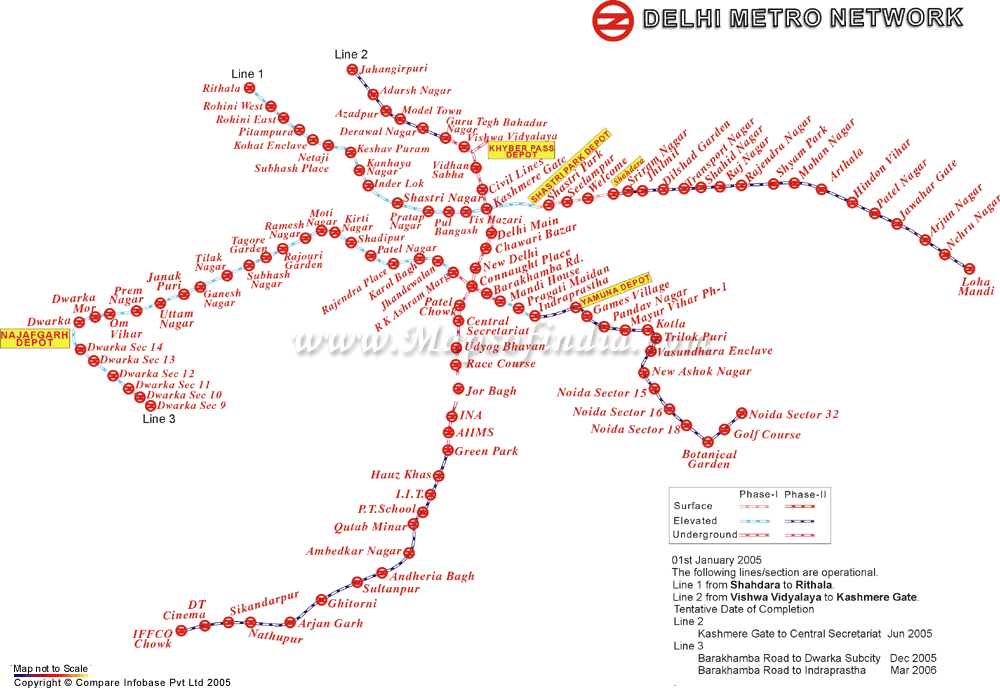 Some enterprising chap created a list of the top 11 (I like, I like -- now THAT'S thinking out of the box) transit systems around the world. A good list, but I'd like to think that in a few years, it might benefit from the inclusion of Delhi's Metro train.
Some enterprising chap created a list of the top 11 (I like, I like -- now THAT'S thinking out of the box) transit systems around the world. A good list, but I'd like to think that in a few years, it might benefit from the inclusion of Delhi's Metro train.Granted, the network is still in its infancy, and parts of it are still being built. But it has the potential to revolutionize the city -- it's fast, cheap, and shockingly clean (particularly in comparison with the DTC busses streaked with paan spittle).
However, it's not without controversy, and the final extension from Delhi to Gurgaon is particularly fraught with problems. It would take a long time to sort through all of them, but they touch on themes from the environment (construction could cut through a large portion of Delhi's protected forest area) to historical preservation (a monument from the 18th century, Dhauli Pyau, was destroyed earlier this month to make way for the transit line) and half-assed nincompoopery (a mall that was destroyed last year to make way for the Metro was not completely razed and now represents a public health threat).
I look at the whole issue as an outsider: Gurgaon has mushroomed as an O&O hub, and though many companies have moved their offices to what was essentially a village 25 years ago, the road connecting the capital and its little sister is pretty insufficient. Official numbers widely vary, as they are apt to, but according to a report cited here, about 800,000 people travel between the two cities everyday -- and that's on one main road, NH-8, which has two to six lanes (depending upon how you count them). To contextualize, I live in south Delhi and commute to Gurgaon every day; in the mornings (before rush hour) it takes about 45 minutes, and in the evenings, 60 to 90 minutes. If it rains, or if there are multiple weddings being held at the farmhouses that dot the connecting road, double those figures.
It seems, from my dispassionate, liberal, Western (bitchy? cold?) perspective, that improving transportation should trump political pandering -- it'll encourage investments and make life easier for people looking to travel the 20-odd miles between the two locales. But will this destroy Delhi's heritage, or should "progress" come at any cost?
No comments:
Post a Comment